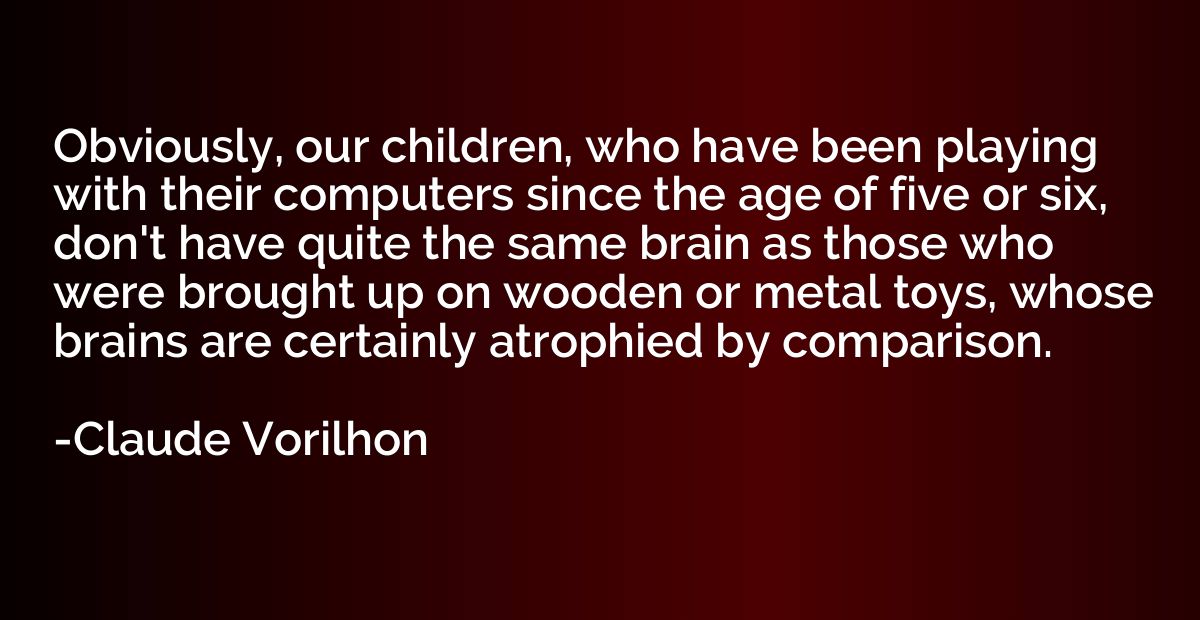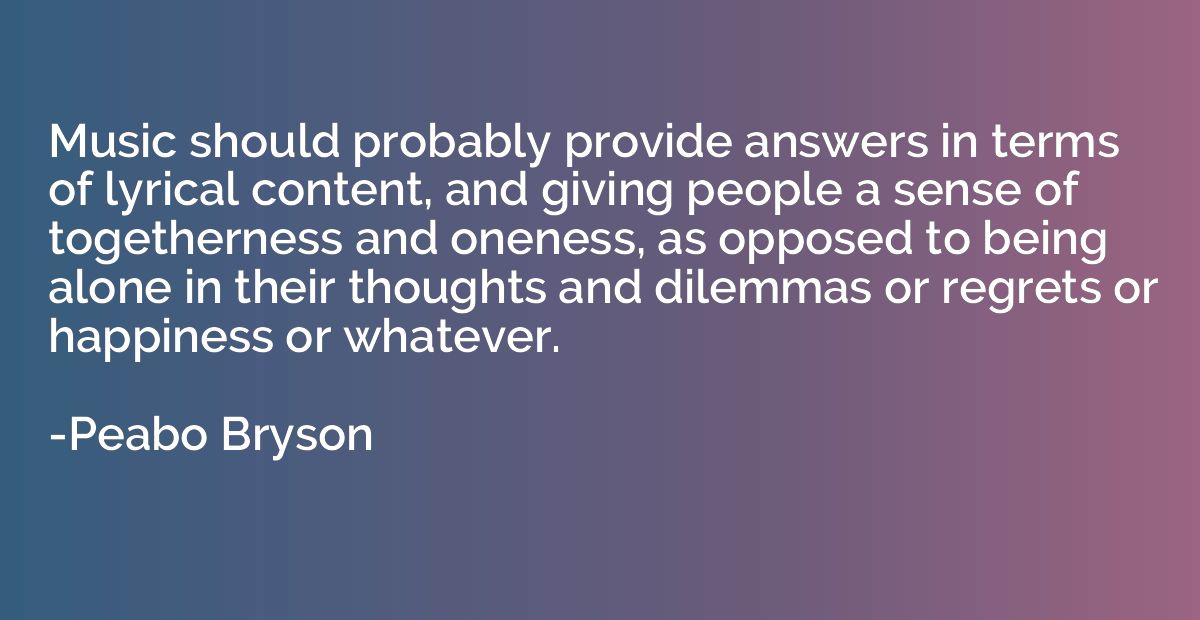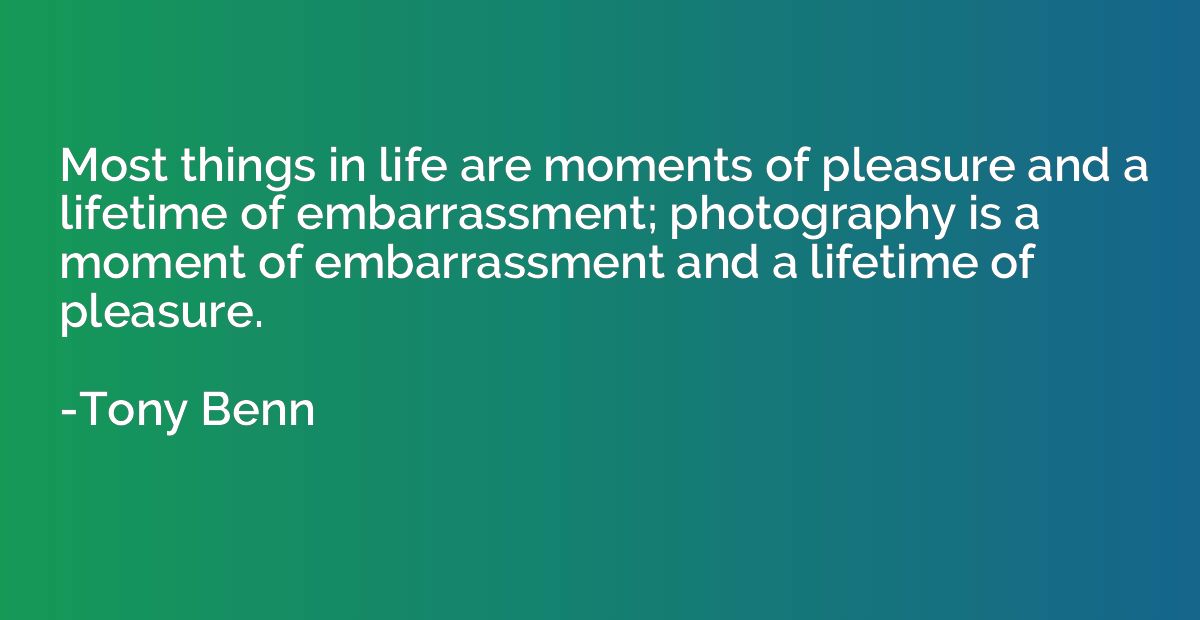Quote by Claude Vorilhon
Obviously, our children, who have been playing with their computers since the age of five or six, don't have quite the same brain as those who were brought up on wooden or metal toys, whose brains are certainly atrophied by comparison.

Summary
This quote suggests that children who have grown up using computers from a young age have different brain development compared to those who played with traditional toys like wooden or metal toys. It implies that the use of computers and technology has positively influenced the cognitive abilities of these children, whereas the brains of those who played with traditional toys may have experienced stagnation or underdevelopment in comparison.














